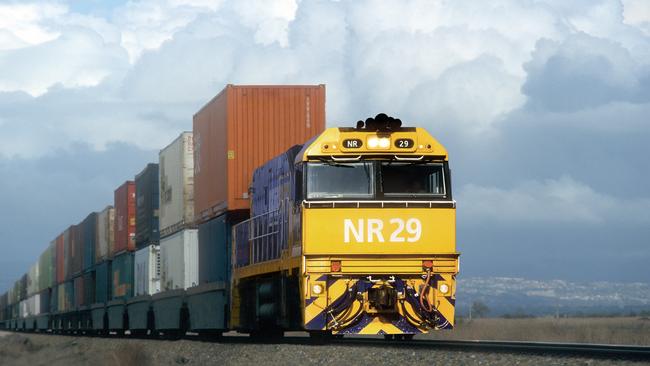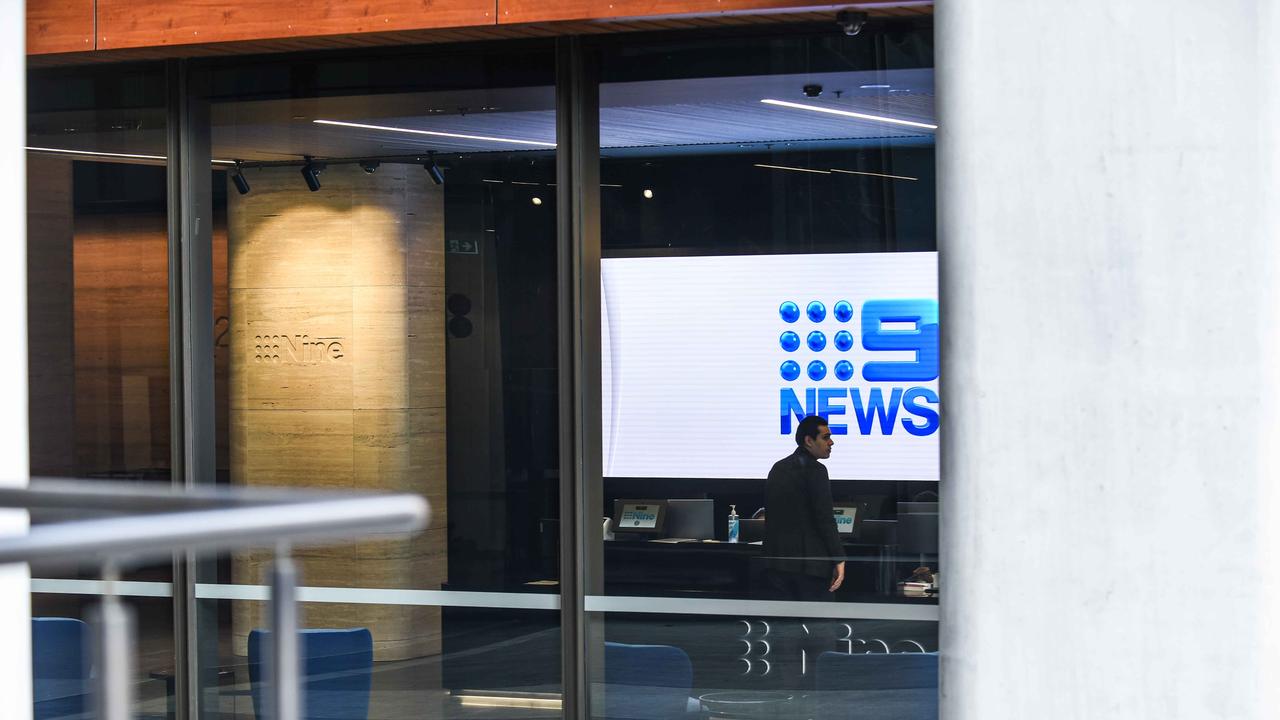Pacific National CEO Paul Scurrah calls for rapid antigen testing amid stretched supply chains
Pacific National boss Paul Scurrah has urgently called for easier rapid Covid testing, as the country’s supply chains are stretched to the limit.

The nation’s largest private rail freight operator wants governments to loosen restrictions that limit the use of rapid antigen testing (RAT) to screen essential rail freight workers for Covid-19, warning an outbreak at a key freight terminal could cripple Australia’s already stretched supply chains.
Pacific National chief executive Paul Scurrah said countries like the United Kingdom, Germany and United States had successfully deployed RAT as a quick screening tool, including use of home testing kits, to help in the fight to contain Covid-19.
“RAT helps to minimise the risk of transmission in the workplace, thereby reducing the number of close and casual contacts within finely tuned rail freight supply lines,” Mr Scurrah told The Australian.
“Combined with freight train crew undertaking PCR tests every seven days, RAT is an extra tool in the arsenal to help contain Covid-19 and reduce disruptions in the national supply chain.”
Pacific National was recently forced to temporarily shut down its Sydney Freight Terminal at Chullora due to a positive Covid-19 case and associated close and casual contacts having to isolate.
It caused a shortage of available train crew and terminal operators, leading to delayed and cancelled interstate rail freight services between Sydney, Melbourne, and Brisbane.
More than 4,500 cargo containers holding fresh and refrigerated food, beverages, white goods, electronics, furniture, household items, building supplies and machinery parts pass through the Sydney Freight Terminal each week.
Pacific National’s 2,300 frontline workers – out of a total workforce of over 3300 – operate out of 70 terminals and depots spread across the mainland.
“It’s called a national supply chain for a very good reason; it’s only as strong as each link in the chain – a Covid-19 outbreak at a key freight terminal could cripple rail services nationwide,” Mr Scurrah said.
One of the key challenges for the freight sector is that unlike PCR testing, RAT is not covered by the Commonwealth’s Medicare Benefits Scheme.
The nation’s top medical regulator, the Therapeutic Goods Administration, also requires RAT to be used under the supervision of a health practitioner.
Mr Scurrah said such a requirement was “totally impractical and cost prohibitive in the long term.”
Pacific National has partnered with Australian company Atomo Diagnostics to commence RAT trials for rail freight workers at the Sydney Freight Terminal and the Enfield and Clyde Yards, as well as workers based at the company’s North Sydney office involved in planning daily rail freight services and crew rostering.
Retail giants Woolworths, Coles and Aldi last week pleaded with the Victorian government to ease isolation rules for staff working at exposed sites.
Last week the Maritime Union of Australia also escalated industrial action across Sydney and Melbourne ports, and the Fair Work Commission allowed Star Track drivers to strike following an industrial stand-off with its owner Australia Post, putting further pressure on the nation’s supply chains.
Australia Post last week suspended e-commerce deliveries in Melbourne for five days after doing the same in Sydney earlier in September.
The Oceania vice-president of American powerhouse C. H. Robinson, one of the world’s biggest providers of freight transportation services and logistics solutions, said on the weekend that conditions in the industry were the worst he had seen in 30 years.
Andrew Coldrey warned there would be no short term fix for the capacity issues affecting global shipping supply chains, claiming “we will be dealing with this for at least another 18 months.”
Paul Scurrah said Pacific National, which operates up to 800 services for 340 customers each week, had been operating at peak capacity for the entire year and planned to expand its haulage capacity over the next 12 months.
Each month, on average, Pacific National hauls up to 78,000 shipping containers, 250,000 tonnes of bulk steel, 650,000 tonnes of export grain, and 12 million tonnes of thermal and metallurgical coal.
Pacific National has offered its frontline workers, which include train drivers and depot and maintenance workers, cash payments of $180 if they get vaccinated to compensate for any loss of income if they have to cut short work shifts.
Mr Scurrah said as governments formulated future health orders for when community vaccination rates reach critical thresholds, it was important understand the scarce availability of highly trained freight train crews.
It can take more than a year for a freight train driver to be fully qualified. He said workers deserved to have certainty about future arrangements.
“Along some key rail freight routes, it only takes a dozen train drivers to be taken out of action – due to being deemed close contacts for example – for services to be severely disrupted or shutdown,” he said.
“When community vaccination rates reach 70 or 80 per cent, will essential freight workers deemed close contacts – who are fully immunised – still be forced to isolate for 14 days?”
Read related topics:Coronavirus



